#Muhammed
Text
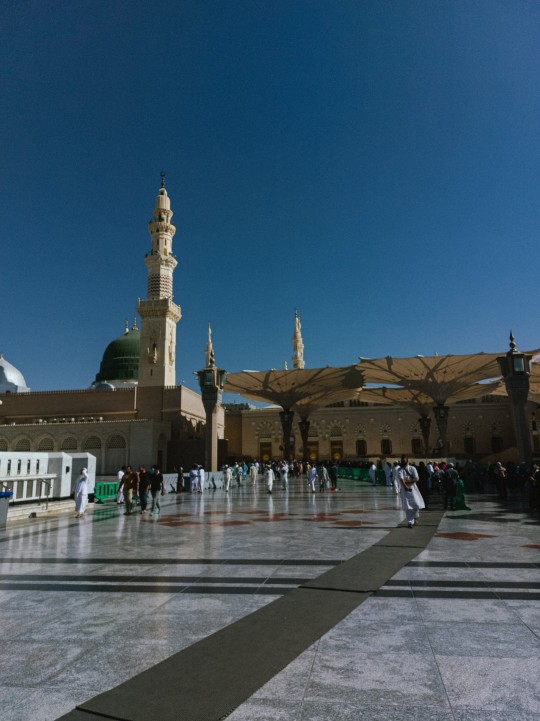





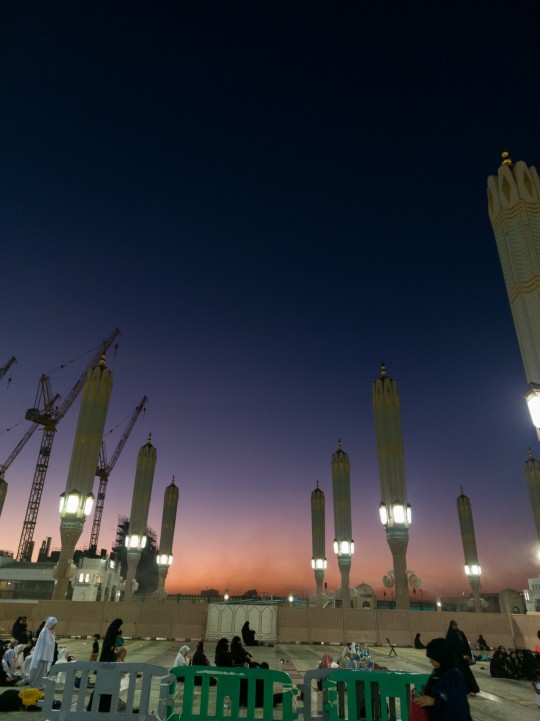
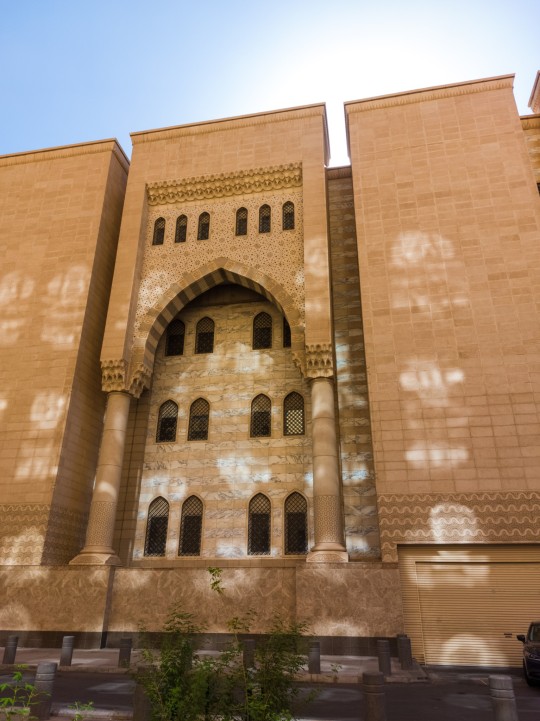
Streets of Medina, city of beloved Prophet
#medina#madina#medinetunebi#masjidnabawi#prophet muhammed pbuh#hz muhammed#muhammed#saudi arabia#prophet
237 notes
·
View notes
Text
The Life of The Prophet Muhammad(pbuh): Before His Birth, His Birth and His Childhood
The Famous Grandfathers of the Prophet
Undoubtedly, we do not have much knowledge on all the ancestors who carried the Master of the Universe’s light as a Divine trust on their foreheads. The ancestors about whom we have the most knowledge are the ones who are closest in time. Here we will take a short glance at their lives and personalities.
Qusai
Qusai, the fourth grandfatherof the Holy Prophet and whose real name was Zayd, was a very important figure. He had only one male sibling by the name of Zuhra.
From these two siblings, Qusai was granted the honor of bearing the noor that came down from Hazrat Adam. From childhood, Qusai garnered much attention for his talents and grew up to be one of the leading figures of Mecca. In a short time, he gained much reliability amongst the people of Mecca for his fair decisions as well as his skills in governance and administration. For this reason, the governance of Mecca was given to him. He divided Mecca into districts for the first time. He situated every tribe into the district that he allocated for them. The most important decisions of Mecca were discussed and decided in his home. Important tasks such as safeguarding the Ka’aba, providing water for and hosting the pilgrims of Hajj, erecting the flag at times of war, and governing the Meccan assembly, were entrusted in him. The first house that was across from the Ka’aba and whose door faced the Ka’aba was specially constructed for Qusai. This house was a parliament, like a type of governmental building or the state of the Meccan city, where all sorts of works and issues were discussed. Historically, Qusai’s residency was known as “Daru’n-Nadwa” and it found fame with this name. It was conserved until half a century after the Hijra (migration).
Qusai was loved and respected by everyone without exception. The noor belonging to the Master of the Universe that he carried on his forehead, made him beloved to and the bosom friend of the Meccan people.
In accordance with the custom, Qusay handed over the role of the family chieftain to his oldest son, Abduddar when he got old and said, “My Beloved son, I appoint you as the chief of this tribe”.
However, Abduddar did not possess the skills to undertake such a great duty. Throughout his life he was unable to fill his father’s place because the noor of the Patron of the Universe was not shining on his forehead, but was on his younger brother’s, Abd Manaf who had four sons: Hashim, Abdusshams, Muttalib, and Nawfal.
Hashim
Hashim is the grandfather of the Holy Prophet from the second generation.
Hashim was a tradesman; he was one of the notables of Mecca’s gentry. As the birth date of the Holy Prophet was nearing, the noor of the Holy Prophet on his forehead was shining even brighter. In addition, he had eminent virtues.
He was extremely generous. During a year of drought, no bread could be found. He had snow-white bread made from the pure wheat he brought from Damascus, cut several camels and sheep, and offered a huge feast composed of bread, meat, gravy, and broth to the whole of Meccan people.
Because Hashim was of high moral character, aptitude, was wise, generous, virtuous, was loved and respected by everyone, and had a noble personality, his name became the title for his family and posterity. For this reason, they termed this great lineage that includes our master of the Universe as the “Hashemites”.
Hashim had four sons: Shaiba (Abdulmuttalib), Asad, Abu Sayfi, and Nadla.
Hashim’s progeny continued from his sons Shaiba and Asad. Shaiba is the Holy Prophet’s grandfather from the first generation whereas Asad is the uncle of Hazrati Ali’s mother, Fatimah.
However, when Hunain, who came from Asad’s progeny, did not have any descendants; every Hashemite was descended from Abdulmuttalib’s branch, proliferated, and spread across the Earth.
Shaiba (Abdulmuttalib)
Shaiba is the Holy Prophet’s grandfather from the first generation. Since he was born with white hair, the name “Shaiba” was given to him; he gained fame with his nickname, Abdulmuttalib and was mentioned more by this name.
The story of how he was given this nickname:
Shaiba stayed with his maternal uncles in Medina during his childhood. One day he and his neighborhood friends were throwing arrows with the other children in a public square in Medina. Amongst all the children, he was easily distinguished by the noor belonging to the Master of the Universe that shone on his forehead. There, a crowd of grownups gathered to watch the children compete.
It was Shaiba��s turn to throw an arrow. He placed the arrow in the bow and stretched the bow in a confident manner. For a moment, he stopped breathing and unleashed the bow. The arrow that sprung from the bow hit its exact aim. When everyone looked at him with amazement, he brought the following words to his tongue through the happiness and excitement that he felt with this success:
“I am Hashim’s son. I am Sir Betha’s son. Of course my arrow will find its target”.
The adults that came to watch heard Shaiba’s commendatory words. One of Harith bin Abd-Manaf sons came close to him and learnt that he was Hashim’s sons by cross-examining. On his return to Mecca, this man explained the situation to Muttalib and remarked that it was not right for such a talented and intelligent child to be left in a foreign province.
Upon hearing this news, Muttalib immediately went to Medina and brought Shaiba to Mecca. As Muttalib was arriving to Mecca with Shaiba on the back of his saddle, they asked:
“Who is this child?”
Muttalib was afraid that this child would be affected with the evil eye so the words “my slave” came out of his mouth.
When he arrived home, his wife, Khadija, asked the same question. Once more, the answer was “my slave”.
The next day Shaiba began to roam the streets of Mecca with the new and beautiful clothes that his uncle bought for him. Everyone became curious about his identity and began to ask questions. Those who knew answered, “Abdulmuttalib” (Abdulmuttalib’s slave).
Despite his identity being later revealed, his nickname remained “Abdul-Muttalib” from that day on.
#allah#muslim#convert#revert islam#revert help#converthelp#muslimah#reverthelp#hijab#new muslim#new convert#how to convert to islam#convert to islam#welcome to islam#god#islam#quran#revert#convert islam#revert help team#help#islamhelp#prayer#salah#reminder#pray#dua#muhammed#new revert
11 notes
·
View notes
Text

Şeyh Ali El-Uchurî'nin tercümesinde geldiği üzere:
"Her kim Receb'in son cumasında -Hatip minber üzerinde iken- 35 defa "Ahmed Resulullah, Muhammed Resulullah" derse, o yıl cebinde para bitmez."
Bunu dudak kıpırdatmayacak şekilden kalpten yapmak lazım.
12 notes
·
View notes
Text
FICTION CALLED ISLAM (By John Christopher on Quora)
During Muhammad's 23 years of prophetic ministry, Muhammad claimed to receive revelations from God, given to him by an angel. Muhammad used many men, functioning as scribes, to write down these assumed revelations. Different scribes wrote down different revelations. `Abdullah Sarh was one of Muhammad's scribes. Evidently, Sarh had some literary skills, sometimes suggesting improvements to Muhammad in the wording of the recited Qur'an. Muhammad often agreed with Sarh's improvements, and allowed the changes to be made.
Sarh eventually left Islam because he knew that no mere scribe should be allowed to change something that was proclaimed to be the word of God. The changes were frequent enough that it caused Sarh to realize that something was amiss. Upon leaving Islam, Sarh became a threat to the credibility of the Qur'an. It would no longer be believed to be the word of God if a man had been allowed to edit and change it. Sarh's threat to the credibility of the Qur'an was also a threat to Muhammad's credibility. No real prophet would allow the word of God to be changed.
Sarh left Islam and lived in Mecca. Some time later, Muhammad and his army moved on Mecca and took it without a fight. On that day, Muhammad ordered the murder of 10 people living in Mecca. Muhammad said "God forbid killing in Mecca, except for this one day." Sarh was one of the people Muhammad ordered to be murdered. His crime? He had left Islam, and he constituted a threat to the credibility of the Qur'an and the prophethood of Muhammad. No wonder then that Muhammad wanted him dead.
PRESENTATION OF ISLAMIC SOURCES
#1 SIRAT RASUL ALLAH
Quoting from "The Life of Muhammad", A Guillaume's a translation of Ibn Hisham's "Sirat Rasul Allah", from page 550: [words in brackets [ ] are mine]
The apostle had instructed his commanders when they entered Mecca only to fight those who resisted them except a small number who were to be killed even if they were found beneath the curtains of the Ka`ba. Among them was `Abdullah b. Sa`d, brother of the B. `Amir b. Lu'ayy. The reason he ordered him to be killed was that he had been a Muslim and used to write down revelation; then he apostatized and returned to Qurahysh [Mecca] and fled to `Uthman b. `Affan whose foster brother he was. [`Uthman was one of Muhammad's closest friends, and later became the Caliph of Islam]. The latter hid him until he brought him to the apostle after the situation in Mecca was tranquil, and asked that he might be granted immunity. They allege that the apostle remained silent for a long time till finally he said yes, [granting `Abdullah immunity from the execution order]. When `Uthman had left he [Muhammad] said to his companions who were sitting around him, "I kept silent so that one of you might get up and strike off his head!" One of the Ansar [Muhammad's helpers from Medina] said, then why didn't you give me a sign, O apostle of God?" He [Muhammad] answered that a prophet does not kill by pointing.
NOTE: the Sirat Rasul Allah is the earliest and most authentic biography of Muhammad. It was even written before the Hadith were compiled.
#2 KITAB AL-TABAQAT AL-KABIR
[Note: words in [ ] brackets are mine]. I have also added ( ) brackets to associate numbers with the people in the list.
Muhammad ordered the execution of 10 people when he took Mecca. Here is the list of names found in Ibn Sa`d "Tabaqat", Vol 2, page 168.
The apostle of Allah entered through Adhakhir, [into Mecca], and prohibited fighting. He ordered six men and four women to be killed, they were (1) Ikrimah Ibn Abi Jahl, (2) Habbar Ibn al-Aswad, (3) Abd Allah Ibn Sa`d Ibn Abi Sarh, (4) Miqyas Ibn Sababah al-Laythi, (5) al-Huwayrith Ibn Nuqaydh, (6) Abd Abbah Ibn Hilal Ibn Khatal al-Adrami, (7) Hind Bint Utbah, (8) Sarah, the mawlat (enfranchised girl) of Amr Ibn Hashim, (9) Fartana and (10) Qaribah.
Occasionally, the Sirat, and the Tabaqat use a different name for the same person. #3 in the list given above is such a case. The differences in the name is due to the amount of family lineage given for the man's name, and the english translation.
Ibn Sa`d corroborates Ibn Ishaq and says on page 174:
A person of al-Ansar had taken a vow to kill Ibn Abi Sarh [the already mentioned Abdallah] if he saw him. `Uthman whose foster brother he (Ibn Abi Sarh) was, came and interceded for him with the prophet. The Ansari was waiting for the signal of the prophet to kill him. `Uthman interceded and he [Muhammad] let him go. The the apostle of Allah said to the Ansari, "Why did you not fulfil your vow?" He said, "O apostle of Allah! I had my hand on the hilt of the sword waiting for your signal to kill him." The prophet said signalling would have been a breach of faith. "It does not behave the prophet to make signal."
NOTE ON THE TABAQAT:
The Tabaqat was translated into English by Moinul Haq, a Pakistani. His work was published by the Pakistan Historical Society. It is published in English in two volumes. The title means "Book of the Major Classes". It is basically a biography of Muhammad.
#3 From Al-Sira by al-'Iraqi
The scribes of Muhammad were 42 in number. `Abdallah Ibn Sarh al-`Amiri was one of them, and he was the first Quraishite among those who wrote in Mecca before he turned away from Islam. He started saying, "I used to direct Muhammad wherever I willed. He would dictate to me 'Most High, All-Wise', and I would write down 'All-Wise' only. Then he would say, 'Yes it is all the same'. On a certain occasion he said, 'Write such and such', but I wrote 'Write' only, and he said, 'Write whatever you like.'" So when this scribe exposed Muhammad, he wrote in the Qur'an, "And who does greater evil than he who forges against God a lie, or says, 'To me it has been revealed', when naught has been revealed to him." So on the day Muhammad conquered Mecca, he commanded his scribe to be killed. But the scribe fled to `Uthman Ibn `Affan, because `Uthman was his foster brother (his mother suckled `Uthman). `Uthman, therefore, kept him away from Muhammad. After the people calmed down, `Uthman brought the scribe to Muhammad and sought protection for him. Muhammad kept silent for a long time, after which he said yes. When `Uthman had left, Muhammad said "I only kept silent so that you (the people) should kill him."
The above quotation in both English and Arabic is from the respective edition of Is the Qur'an Infallible? by `Abdallah `Abd al-Fadi, Order Number VB 4009 E, Light of Life, P.O. Box 13, A-9503 Villach, Austria. The book is availabe in English, and the original Arabic edition.
Al-Iraqi refers to Sura 6:93 above. From Dawud's translation Sura 6:93 reads:
Who is more wicked than the man who invents a falsehood about God, or says: "This was revealed to me", when nothing was revealed to him? Or the man who says, "I can reveal the like of what God has revealed"?
#4 Al-Baidawi commenting on the Qur'an, Sura al-An`am 6:93
"'To me it has been revealed', when naught has been revealed to him" refers to `Abdallah Ibn Sa`d Ibn Abi Sarh, who used to write for God's messenger. The verse (23:12) that says, "We created man of an extraction of clay" was revealed, and when Muhammad reached the part that says, "... thereafter We produced him as another creature (23:14), `Abdallah said, "So blessed be God the fairest of creators!" in amazement at the details of man's creation. The prophet said, "Write it down; for thus it has been revealed." `Abdallah doubted and said, "If Muhammad is truthful then I receive the revelation as much as he does, and if he is a liar, what I said is a good as what he said."
Quoted from the famous Tafsir Anwar al-Tanzil wa Asrar al-Ta'wil by `Abdallah Ibn `Umar al-Baidawi.
`Abdullah ibn Sarh. He was a threat to the credibility of the Qur'an. He was a Muslim, worked with Muhammad in writing down the Qur'an, and, from time to time he suggested some minor changes, or made deliberate omissions or additions. `Abdullah eventually realized that if this Qur'an were truly from God, no changes would be made at his suggestion. Sarh realized Islam and the Qur'an were false and went back to Mecca.
After Muhammad took Mecca, and issued the order to kill him, he hid out with `Uthman who was one of Muhammad's closest companions. Later Sarh pled for amnesty. Muhammad wanted one of his men to kill him on the spot, but they didn't know if they should, because they couldn't read Muhammad's mind. So, finally, Muhammad gave him amnesty.
We see here that Muhammad really wanted Sarh dead. But Muhammad handled this in a very irrational way. Muhammad issues an edict to have a man executed, but fails to have it carried out because he doesn't want to make a signal with his hand, or wink with his eye??? Why didn't Muhammad kill him himself? If this man had committed such a crime as to cost him his life, why didn't Muhammad see that his death sentence be carried out? What kind of law is that? "You committed a major crime, punishable by death, but I'm going to let you live because I am too proud to signal with my hand."???
Note here that the Qur'an itself, revealed in regard to Sarh in 6:93, calls Sarh extremely wicked.
This shows that Muhammad gave orders willy-nilly. This man committed no major crime, he just exposed Muhammad and the Qur'an. Muhammad just wanted this man killed for personal reasons. People lived or died based on Muhammad's frame of mind, not based on law and justice.
Many Muslims today proclaim that,
"the Qur'an is the speech from Allah, revealed in its precise meaning and wording through the angel Gabriel, transmitted by many, inimitable, unique and protected by Allah Himself against any corruption".
Ahmad von Deffer "Ulum al-Qur'an", p21.
Yet we find that the Qur'an has suffered corruption. Remember, all of the sources presented are from early, sincere, dedicated, Muslim writers. There were devout Muslims, not moderates or liberals who would change real Islam for their own ease.
So, even in the historical writings of Islam, we find proof of the Qur'an's corruption. Note: These additions by `Abdullah ibn Sarh are still part of the Qur'an today.
#secular-jew#israel#jewish#judaism#israeli#jerusalem#diaspora#secular jew#secularjew#islam#terrorism#islamism#Mohammad#Muhammed#prophet mohammed#Mecca#Medina#khaybar
8 notes
·
View notes
Text
Nehme Acht vor Menschen, deren Zunge anders als ihre Herzen sprechen.
#islam#muslim#islam zitate#deen islam#hadith#zitat#islamisch#zitate#sprueche#liebe#koran#muhammed#ramadan
28 notes
·
View notes
Text
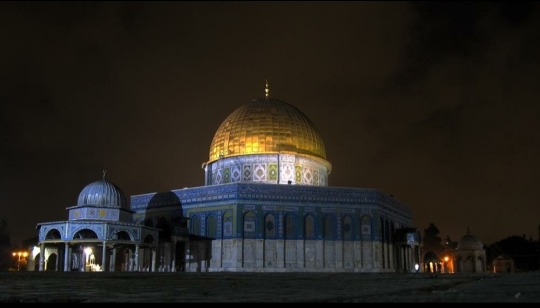
Ne sıkıntın olursa olsun hemen 100 defa "Allahümme salli ala seyyidina Muhammedinin nebiyyil ümmiyi ve ala alihi ve Sahbihi ve sellim" de sıkıntından kurtul.
(Gönenli Mehmet Efendi (ks))
105 notes
·
View notes
Text
Enough Self Improvement
Our world is always imploring us to improve. You need to have a better physique, create some new skills so that you don’t get left behind, improve your relationships, your spirituality, learn a new language, or manage your money better. Here is the thing; the list is endless and 90% of the investment you make reading or taking classes in self improvement is pretty much worthless. Why do we get on…
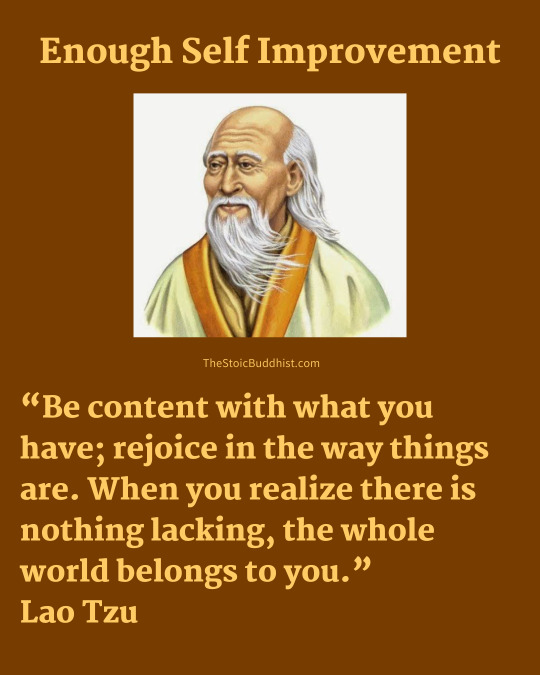
View On WordPress
#quotes quotestoliveby motivation motivationalquotes epictetus stoicism stoic acceptance choices anxiety anxious yoga meditation#Alan Watts#Bible#Buddhism#buddhist#Islam#Jesus Christ#Judaism#Lao Tzu#Marcus Aurelius#Marcus Aurelius Meditations#Muhammed#Pali Canon#philosopy#Quran#Self Improvement#Seneca#stoic#TheStoicBuddhist
7 notes
·
View notes
Text
JAMI'at-TIRMIDHI: The Book on Hunting: Hadith 1874
Narrated Abu Ad-Darda':
"The Messenger of Allah (ﷺ) prohibited eating the Mujath-thamah, and it is what is trapped and killed by arrows."
Reference : Jami` at-Tirmidhi 1473
In-book reference : Book 18, Hadith 11
English translation : Vol. 3, Book 16, Hadith 1473
#allah#muslim#convert#revert islam#revert help#converthelp#muslimah#reverthelp#hijab#new muslim#new convert#how to convert to islam#convert to islam#welcome to islam#god#islam#quran#revert#convert islam#revert help team#help#islamhelp#prayer#salah#reminder#pray#dua#muhammed#new revert
3 notes
·
View notes
Text
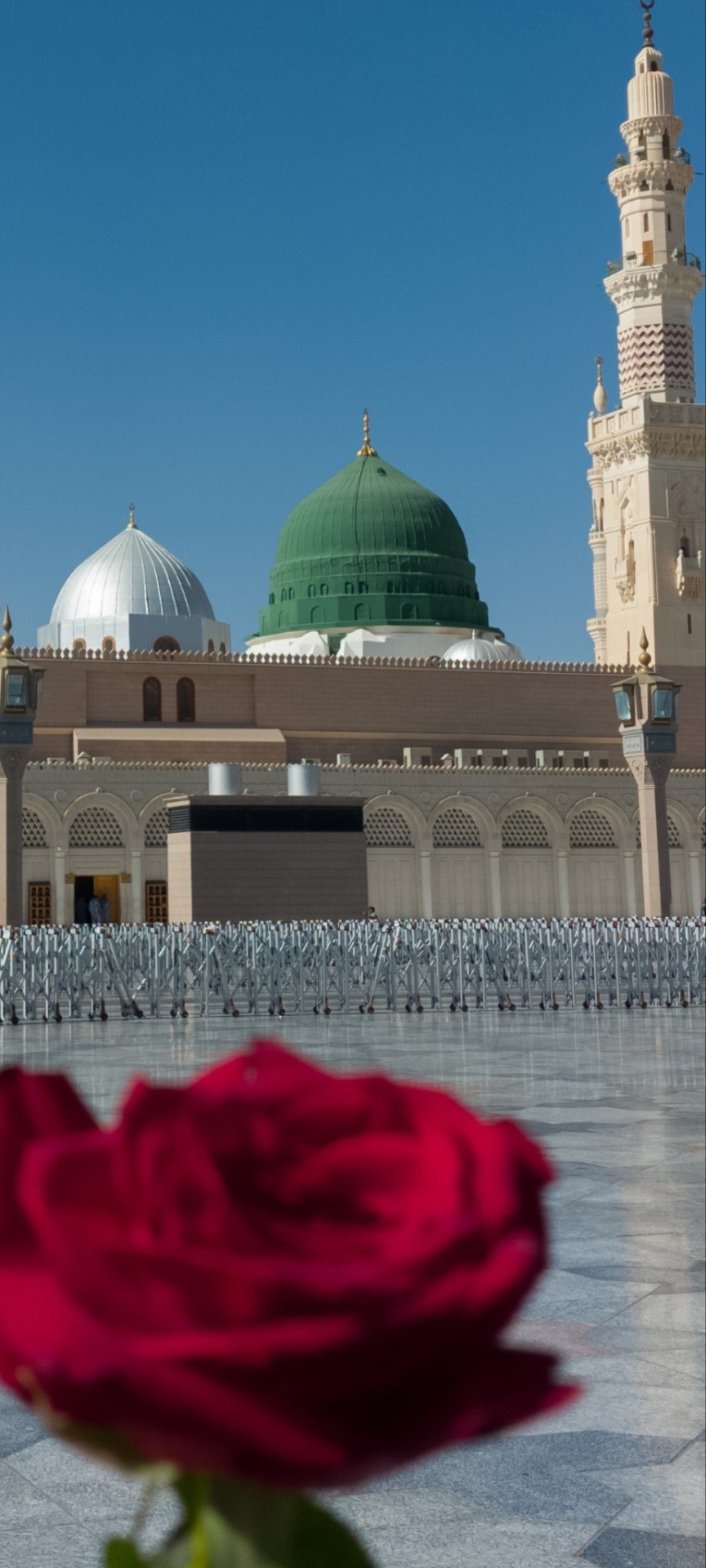
Otvori mi prozore!
Makni s lica velove!
Pobjeći ću iz safa,
Daj mi ruku Mustafa!
#muhammedas#muhammed#prophet muhammad#hz muhammed#prophet muhammed pbuh#muhammad#prophets mosque#prophetsmosque#prophet#photoblog#aesthetic#aesthetic photo#tumblr aesthetic#tumblrpics#vsco#islamic art#arabesque#islamicpost#saudi arabia#medina#medinetunebi#media#madinah#madina munawara#masjidu haram#masjidunabawi#masjidnabawi#masjid nabawi#masjid an nabawi#masjid
23 notes
·
View notes
Text
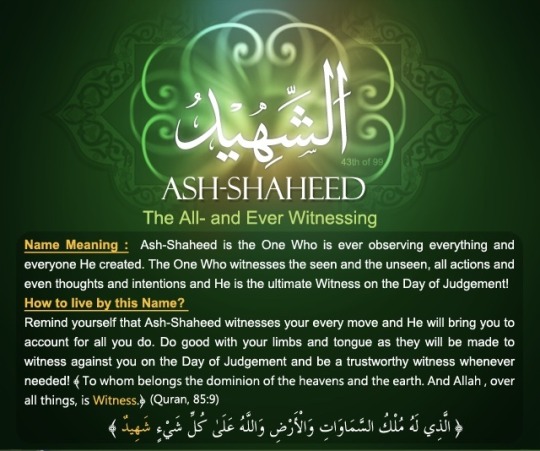
Allah calls Himself Ash-Shaheed— The All-and-Ever Witnessing— on 18 occasions in the Quran. Ash-Shaheed is the witness whose sight no one can escape. He is the One with full knowledge of all matters, witnessing the apparent and hidden, anywhere, any time. Ash-Shaheed is the witness and observer of all creation, thoughts, and actions, and the ultimate witness on the Day of Judgment!
The Witness, the Testifier, the Certifier
Shaheed comes from the root sheen-haa-daal, which points to three main meanings. The first meaning is “to bear witness.” The second meaning is to offer testimony, and the third is to have knowledge of something.
This root appears 160 times in the Quran in nine derived forms. Examples of these forms include yashhadu (“to testify”), ashhidoo (“to take witness”), shahaadati (“the seen”) and shuhadaa (“witnesses, martyrs”).
Shaheed refers to Allah’s awareness of everything; He hears every sound, loud and quiet, and sees the small and the large. In addition, He is the One who will testify for or against His servants for their deeds.
Ash-Shaheed Himself says:
Say: What thing is the greatest witness? Say: Allah is shaheed between you and I; this Qur’an has been revealed to me that I may warn therewith – you and whomsoever it may reach. [Quran, 6:19]
Allah is Witness over all things. [Quran, 58: 6] Allah is sufficient as Witness. [Quran, 4: 79]
Allah (Himself) is Witness that there is no god save Him. And the angels and the people of knowledge (too are witnesses). [Quran, 3:18]
A Scene of the Souls
When Allah created Adam, He wiped Adam’s back and every person that He will create from him until the Day of Resurrection fell out from his back. [At-Tirmidhi and Al-Haakim] Allah stated that He brought the descendants of Adam out of their fathers’ loins, and they testified against themselves that Allah is their Lord and King and that there is no deity worthy of worship except Him. Allah then said,(and made them testify as to themselves (saying): “Am I not your Lord” They said: “Yes!”) [Tafseer ibn Katheer]
This was your first testimony and it means we will have no excuse on the Day of Judgement!
It will be said to a man from the people of the Fire on the Day of Resurrection, “If you owned all that is on the earth, would you pay it as ransom’ He will reply, `Yes.’ Allah will say, `I ordered you with what is less than that, when you were still in Adam’s loins, that is, associate none with Me (in worship). You insisted that you associate with Me (in worship).” [Tafseer ibn Katheer]
How Can You Live By This Name?
1. Say the sahahda, live the shahada. The Prophet salallahu ‘alayhi wa sallam said: Man shahida an la ilaha illallah dakhala al-jannah – Whoever witnesses that there is no god but Allah alone enters Paradise.[Saheeh Muslim]. Your testimony of faith in Allah is something you not only utter, but must live by. When you say I bear witness there is no god but Allah it means that in your talk and actions, in your house or outside you show that you love Allah more than anyone else, you accept Him as your Creator, Master and Ruler of the universe, that you worship Him alone in all matters and not your desires or others’ directions. Next time when you say the shahada in your prayer, reflect upon the meaning. Increase in saying la ilaha illallah to renew your emaan!
2. Trust in Ash-Shaheed. Ash-Shaheed says in this beautiful soothing ayah: So wait patiently for your Lord’s decree, for surely you are in Our sight. [Quran, 52: 48] Rest assured that any unjust treatment by the hands of others you go through, slander, gossip or abuse, Ash-Shaheed is your Witness and you will get justice.
3. Remember that you are a servant. It’s sometimes easy to shout at your family or children inside the house, or even oppress someone when you are in a position of authority over them. Remind yourself in each situation, wherever you are, whoever you talk to, whatever position you have, that you are a servant of Allah. Ash-Shaheed is witnessing every step you take and will you to account. Use this tip: when you are about to do something wrong, look up at the sky and imagine Ash-Shaheed watching you!
4. Don’t make your limbs testify against you.Use your tongue for speech beloved by Ash-Shaheed, your eyes to read the Quran, your limbs to pray to Him as they will all testify as what you used them for! The Prophet salallahu ‘alayhi wa sallam said: I was amazed at how a servant will dispute with his Lord on the Day of Resurrection. He will say, “My Lord, did You not promise me that you would not treat me unjustly” Allah will say, “Yes.” The man will say, “I will not accept any witness against me except from myself.” Allah will say, “Is it not sufficient that I and the angels, the noble scribes, are witnesses” These words will be repeated several times, then a seal will be placed over his mouth and his organs (or limbs) will speak about what he used to do. Then he will say, “Away with you! It was only for your sake that I was arguing!”)” [Muslim and An-Nasa’i]
5. Always stand up for the truth. Always stand up for the truth in your testimonies, even if it is against yourself! Sometimes it is hard to admit a mistake, or testifying for the truth might even endanger you, but know this characteristic is one of true honour of a believer, which earns you not just a place in Paradise, but a place of honour! And those who are in their testimonies upright and those who [carefully] maintain their prayer: they will be in gardens, honoured. [Quran, 70:33-35]
Wallahu ta’alaa ‘alem.
O Allah, Ash-Shaheed, we know that You witness all things. Guide us to live by the shahada and make us utter the testimony of faith on our deathbed. Help us remember that You are witnessing us, and make this awareness an inspiration for us to increase our good deeds. Make us always stand up for the truth and join us with the prophets and shuhadaa in the highest Paradise, ameen!
#allah#islam#revert help team#asma al husna#revert help#muslim#ayat#daily#allah’s name#dua#pray#prayer#salah#muhammed#revert#convert#convert help#convert islam#how to convert to islam#become a muslim#welcome to islam#prophet#god
11 notes
·
View notes
Text
The Life of The Prophet Muhammad(pbuh): Before His Birth, His Birth and His Childhood
The Prophet is Given to a Foster Mother
The universe, which rejoined its master was joyful. The heart of the Arabia, which harbored the person that would provide the heart of the humanity with light and peace, was very excited.
Makkah, in which the unmatched event of the universe took place, was so excited and joyful that it was as if it wanted to fly to the lofty realms.
Hazrat Amina was peaceful and jubilant. It was as if the sweet smiles of her lovely child were helping her to forget a tinge of the intense pain that she felt over her husband’s death. Her child was her only consolation that secured her hope for the future.
The fortunate Amina could only suckle her glorious child for week. After this, Abu Lahab’s handmaiden, Lady Suwayba became the wet nurse of the Master of the Universe and suckled him for days.
Before that, Lady Suwayba had nourished Hazrat Hamza. In this way, she had attained the fortune and honor of being the means in joining the Holy Prophet (PBUH) and his esteemed uncle as foster brothers.
The Master of the Universe (PBUH), who possessed such virtue and feelings of faithfulness, never forgot the smallest favors that people did for him, nor did he leave them unrequited. Throughout his entire life, he never forgot Lady Suwayba who nourished him for a period of time. He would frequently visit her and would always show her kindness, respect, and pay her compliments.
Yes, faithfulness was the foundation of good manners that the Holy Prophet (PBUH) brought to the face of the Earth. The smallest trace of ingratitude cannot be found in the immaculate and upright life of our Beloved Messenger (PBUH).
At one point in time, Hazrat Khadija, who had taken lessons from the Holy Prophet’s (PBUH) virtue and gratitude, wanted to purchase Lady Suwayba, who would frequently visit Hazrat Khadija’s home, for the purpose of setting her free; however, Abu Lahab did not lend himself to this idea. It was not until after the Holy Prophet’s (PBUH) migration to Medina that Abu Lahab freed Lady Suwayba on his own.
Abu Lahab was our Holy Prophet ‘s (PBUH) own paternal uncle. Afterwards he did not testify and admit to the Holy Prophet’s (PBUH) Prophethood; he did not forsake being a pagan and did not refrain from his attempts in being our Holy Prophet’s (PBUH) biggest enemy, either. For this reason, he incurred the wrath of Allah and did not earn a value that is equivalent to the nail of his slave, Lady Suwayba. In fact, it has been explained that because of Lady Suwayba, Abu Lahab has obtained a driblet of grace in the afterlife.
After his death, he was seen in a dream where he was found screaming in the severe punishment of hell. They asked him: “Why are you screaming? What is the matter?”
He answered: “What else could be the matter? The absence of water is making me burn! I never saw any good in my life, yet I did find one fortune: Because I set the woman, who nourished Muhammad, free, I have been spared the opportunity to absorb water and be watered” and as he said this, he showed his index finger (the finger that testifies faith).
This incident is certainly a case in point. A ferocious enemy of Islam, like Abu Lahab, who did not refrain from oppressing, torturing, and insulting the Master of the Universe throughout his entire life, was the recipient of such beneficence and grace and a tinge of his punishment in hell was alleviated. This means that goodness done not only upon our Beloved Messenger PBUH, but also upon those who have served him, is also not left unrequited by God Almighty’s grace and beneficence.
In addition, one should think of the greatness in gifts, favors, and Divine endowments of the eternal realm that are awaiting those who have made the Master of the Universe (PBUH) their absolute imam and guide in every matter and the true believers who have felt honored to uphold his Sunnah on the Earth .
The Custom of Giving Babies to Wet Nurses
Mecca’s weather was hot and muggy. It did was not good for the children’s delicate nature and was not a favorable condition for a healthy upbringing. In the desert, the weather was nice, the water was sweet and clean, life was easy, and the climate was mild. Besides, some of the tribes that lived in the desert had a language and diction that was smooth and sharp. They maintained their nobility and practiced good conduct.
Based on this, the Qurayshi gentry and leading figures practiced the custom of handing their children over to the tribal women in the desert to be breastfed for a cost, so that their children could grow and be brought up under healthier conditions and to learn and speak a dialect of Arabic that was appropriate in its essential form. The child would remain with his/her wet nurse for 2-3 years, and sometimes even more.
For this reason, many tribes that lived in the uplands/prairies, Sa’d bin Bakr’s tribe in particular, would have a caravan of women go to Mecca a few times a year in which the women would take the newly-born infants with them to their homeland for the purpose of nourishment.
Among the tribes in the vicinity of Mecca, Sa’d bin Bakr’s tribe was the one that had acquired fame since it was distinguished for its honor, generosity, chivalry, humility, and speaking Arabic properly. For this reason, the leading figures of Quraysh mostly wanted to hand the custody of their children over to the women of this tribe.
The Arrival of the Women from Bani Bakr’s Tribe to Mecca
The Holy Prophet (PBUH) was being nourished by Lady Suwayba.
At that time, a strong drought was prevalent in the homeland of Sad’s sons although such a strong drought had not occurred till then. The drought resulted in a famine that left the tribal community poor and miserable. It was so bad that they had difficulty finding something to eat. Their camels and sheep had weakened and their milk had ceased.
During this year of intense famine and drought, the tribeswomen of the Bani Bakr had gone to Mecca in a crowded procession with the intention of finding a child to nourish and of obtaining a portion of their livelihood.
All of the women, with the exception of one extraordinary lady, had chosen a child who was appropriate for them. Strangely enough, none of them chose nor approached our Beloved Messenger (PBUH) because they thought they would not be able to obtain much money and help since he was an orphan.
There was only one woman who arrived late in Mecca. She was distinguished among her tribe for her decency, cleanliness, gentleness, and modesty. Due to their old and frail donkey, Halima and her husband had fallen behind the rest of the procession. When they entered Mecca, all of the newly-born Qurayshi children, with the exception of one very extraordinary infant, had been chosen by the women of the Bani Bakr tribe that were in the forefront. With the fate and wisdom of the Possessor of the Absolute Power, Halima could not find anyone in need of nourishment.
Her husband, Harith, was sad, too. All of their friends shared the children of the wealthy families among themselves. She was the only one who was left empty-handed and it was only because she arrived late.
This virtuous woman, who now had a pale and sad countenance and was unaware of the plan that Divine fate had drawn for her, wandered the streets of Mecca with despair and the distress of not being able to find an appropriate fitting child.
Incidentally, she encountered an old man with a friendly face and who, through his presence, summoned the respect of his surroundings. This individual was Abdulmuttalib, the grandfather of the Master of the Universe (PBUH). They looked each other as if they had been looking to become the relief for their troubles. Then they began to engage in conversation:
Abdulmuttalib asked, “Where are you from?”
Halima: “I am a woman from the Bani Sa’d Tribe” (Sons of Fortune/Luck)
Abdulmuttalib: “What is your name?”
She answered, “Halima”.
Abdulmuttalib: “How wonderful! How wonderful! Fortune and gentleness are two traits that carry the beneficence of this world and the honor and glory of the afterlife” After he said this, Abdulmuttalib took a deep breath and followed with: “Oh, Halima! I have an orphaned child next to me. I offered him to the women of the Sons of Sa’d but they did not accept him. Come and be the wet nurse of this child. Maybe you will attain prosperity, wealth, and fortune for taking care of him”.
At first, Halima became hesitant upon hearing this unexpected offer. However, she did not want to return to her homeland empty-handed. For this reason, she overcame her hesitation and accepted the offer from within. Nevertheless, she did not want to disclose her answer without first asking and receiving permission from her husband. She immediately returned to her husband and after she explained everything to him she said, “I was unable to find a child to nourish. I do not favor going back empty-handed among my friends. By God, I am going to take that orphan”.
Her husband, Harith, supported her view and said, “There is no harm in taking him. Perhaps Allah will endow us with prosperity and blessings thanks to him”.
Upon this, they returned to Abdulmuttalib.
Abdulmuttalib took Halima to Hazrat Amina’s modest home which the Beloved Prophet (PBUH) illuminated.
Halima went to our Holy Prophet’s (PBUH) bedside. Our lovely Master (PBUH) was wrapped in a white fabric made from wool and was sleeping soundly on a blanket of green yarn. The surrounding smelled like musk!
Halima was in a state of amazement. She immediately warmed up to this child so much that she could not bear to wake him up!
The cloud of gloom and anguish had left Halima. She was so happy that it was as if she was walking on air. It was such a great bliss to have suddenly come across an infant of excessive beauty after squirming in the distress of not being able to find a child.
Halima could not resist anymore. She neared the Master of the Universe’s (PBUH) bedside very closely and slightly lifted the corner of his blanket. With a mother’s love and compassion, she kissed his forehead and hands that smelled like roses and that were softer than cotton and as white as snow.
At that moment, our Holy Prophet (PBUH) opened his eyes and replied to Halima’s kisses with a sweet smile. They got along with one another.
While one of them was in despair because of not being able to find a child, worn out, and downhearted, the other was a radiant orphan who had been rejected by the women. Fate had filled both of their worlds with happiness.
#allah#muslim#convert#revert islam#revert help#converthelp#muslimah#reverthelp#hijab#new muslim#new convert#how to convert to islam#convert to islam#welcome to islam#god#islam#quran#revert#convert islam#revert help team#help#islamhelp#prayer#salah#reminder#pray#dua#muhammed#new revert
5 notes
·
View notes
Text
A Hadith.
The Messenger of Allah said: "The person who says each morning and evening, 'I am satisfied with Allah as (my) Lord, Islam as (my) religion and Muhammad as (my) Messenger, it will be incumbent on Allah to satisfy him on the Day of Resurrection." [Ahmad, Abu Daawood, At-Tirmithi, Ibn Maajah and An-Nasaa’i]
#islam#islamic#hadith#quotes#quote#profit#muhammed#prophet muhammed pbuh#muhammad pbuh#pbuh#quoteoftheday#muslim#muslims#faith#inspire#inspiration#morning#evening#messanger#allah#god#islamic reminders#islamic post#deen#deenislam
8 notes
·
View notes
Text

#islam#islamiyet#allah#allahuekber#la ilaha illa allah#ayet#hadisler#tevhid#hilafet#islam devleti#hayırlı sahurlar#sahur#mypost#muhammad#lider#müminler#mutluluk#muhabbet#muhammed#mümin#Mümine#ankara#hafta sonu#menu sahur#hayırlı iftarlar#iftar#hayır#hayırlı ramazanlar
6 notes
·
View notes
Text
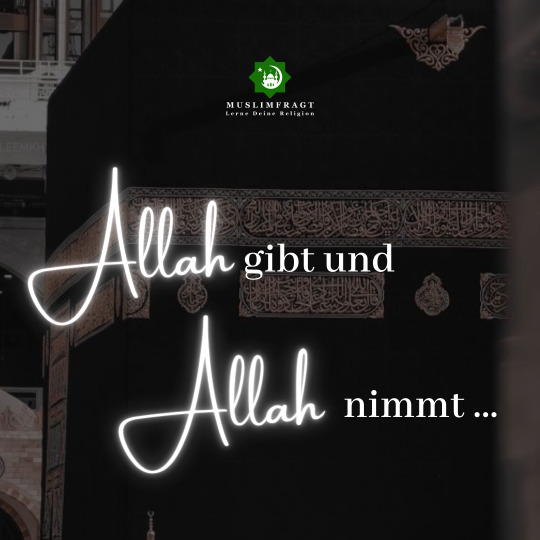
#islam#muslim#islam zitate#deen islam#hadith#zitat#islamisch#zitate#sprueche#koran#allah#muhammed#ramadan#spruch#deen#islamdeutsch#mekka
16 notes
·
View notes
Text

*Rasulullah da bunaldı.* Amcasını,hayat arkadaşını kaybetti ve destek görebilmek için gittiği Taif'ten de taşlanarak kovulduktan sonra bir üzüm ağacının altında "beni kime bıraktın Ya Rabbi?" diye yakarmıştı. Sende bunalacaksın çünkü burası Peygamberlerin gönlünün kırıldığı dünya.
7 notes
·
View notes